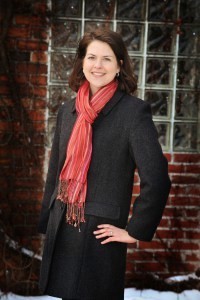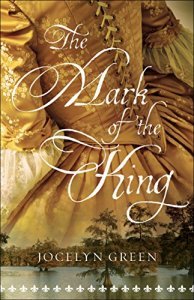Interview and Giveaway with Jocelyn Green, Author of The Mark of the King
Occasionally, there are times when I read a book’s blurb and tell myself I need to read that book. In the case of The Mark of the King, I was also pulled in by the fact that I knew the author’s writing style and the cover art was to die for. So I was honored to become part of Jocelyn Green‘s early reader team for this historical novel, set in the early days of Louisiana.
I stayed up way too late one night to finish this book, which kept me on the edge of my seat. Here’s my review:
Rarely do I encounter such well-researched, beautifully-written, theme-rich historical fiction as The Mark of the King. From the first page, I was riveted to Julianne’s story. Chock-full of atmospheric detail, this novel transported me to a place I had never read much about, and even though it brought to light horrors I had never heard of, the entirety of the story was wrapped with the repeated theme of the grace of God. I love books that gently bring timeless truths to life (as opposed to spelling those truths out for us, leaving no room for nuance), and this novel does that. Best of all, it had a combination of factors that made it one of my new favorites: memorable, believable characters, unpredictable twists, and a story that keeps living in my head long after I turn the last page. C’est bon!
Today I’m interviewing Jocelyn about this incredible novel that will definitely be on my “Best of 2017” list. Here’s a little about Jocelyn, and be sure to read to the end of the interview to link to the French-themed giveaway!:
 Jocelyn Green inspires faith and courage as the award-winning author of numerous fiction and nonfiction books, including Wedded to War, a Christy Award finalist in 2013, and The 5 Love Languages Military Edition, which she coauthored with bestselling author Dr. Gary Chapman. She graduated from Taylor University in Upland, Indiana, with a B.A. in English, concentration in writing. She is an active member of the Christian Authors Network, the Advanced Writers and Speakers Association, American Christian Fiction Writers, and the Military Writers Society of America. She loves Mexican food, Broadway musicals, Toblerone chocolate bars, the color red, and reading on her patio. Jocelyn lives with her husband Rob and two small children in Cedar Falls, Iowa. Visit her at www.jocelyngreen.com.
Jocelyn Green inspires faith and courage as the award-winning author of numerous fiction and nonfiction books, including Wedded to War, a Christy Award finalist in 2013, and The 5 Love Languages Military Edition, which she coauthored with bestselling author Dr. Gary Chapman. She graduated from Taylor University in Upland, Indiana, with a B.A. in English, concentration in writing. She is an active member of the Christian Authors Network, the Advanced Writers and Speakers Association, American Christian Fiction Writers, and the Military Writers Society of America. She loves Mexican food, Broadway musicals, Toblerone chocolate bars, the color red, and reading on her patio. Jocelyn lives with her husband Rob and two small children in Cedar Falls, Iowa. Visit her at www.jocelyngreen.com.
Interview with Jocelyn Green:
HG: All your historical books are so well-researched. Could you share a little about how long the research process takes versus the writing process? Also, are you a plotter or a pantser?
JG: Thank you! I think the research is one of my favorite parts of the process. I usually spend about nine months researching and three months writing the first draft. Then after I turn it in to the publisher, we spend a couple more months editing, which usually requires more research if I write any new scenes.
I have typically been a plotter, but the book always diverges from my outline to some degree as I get into the story and think of new twists that would work well, or decide that some plot points won’t work for some reason. So as much as I try to plan, I also remain flexible.
HG: The Mark of the King is so different from many Bethany House books I have read. I love the way you covered dark, desperate situations, but didn’t revel in the gore (always my goal, as well). How did you maintain balance in portraying this tumultuous era?
JG: I cringed while writing some of the scenes in this book, but all of them were historically accurate and important in establishing the need for God’s grace, and the power of it to cover anything and everything. I want to communicate those things that were true to history with enough detail so the reader understands what’s going on, but allow the reader’s imagination to fill in a lot of blanks. I had a lot of practice finding this balance when I wrote my four-book Civil War series. J To skip over the danger of the Louisiana frontier would be doing a disservice to history, and would weaken the message of grace. One thing I’ve learned during my years of writing both fiction and nonfiction is that we don’t have to be afraid to acknowledge the bad things that can happen, because no matter how dark life can seem, Jesus’ light can shine brighter (Click to tweet!). The Bible contains some pretty violent passages too, but the overall message of God’s grace remains dominant. So my goal as a writer is not to sanitize history, but also not to dwell in the darkness, but to push through it and let hope shine bright.
(HG: Oh my goodness, you just articulated my own thoughts on what we need to be writing as Christian authors. We need to take the Bible as our guide, and it did not gloss over injustices and evil, although it didn’t wallow in it).
HG: Have you been to Louisiana or did you have a source who filled you in on the environment? It was so vivid in your descriptions!
JG: Yes, my family and I took a research-vacation road trip down to New Orleans before I wrote this book. But obviously, today’s New Orleans is nothing like what it was in 1720. So we explored some backwater areas that weren’t built up, but I also had a source who graciously answered all my questions. Dr. Bob Thomas is a professor in the Environmental Studies Center of Loyola University, and he was able to tell me where the bayous, sand ridges, swamps, marshes, etc., were, what kind of trees and vegetation grew on and near each one, and so on. He was a goldmine of information for me, and I’m so indebted to him!
HG: I know you have a French sister-in-law–did she help with anything specific to French ways/language (video of French pronunciations below)?
JG: Yes, she did! When I went to New Orleans, I spent a day researching at the Historic New Orleans Williams Research Center. Many sources were in English but the book I most wanted to read was in French, which I don’t speak. I could tell enough by the chapter titles which chapters I wanted, so the staff made copies of those pages and I brought them home with me. Audrey translated all of it verbally while I took notes. So helpful!
HG: Finally, tell us about the next book you’re writing! Is it a standalone novel? Could you tell us where/when it’s set?
JG: I’m writing another stand-alone novel, this time set in the 1790s, about a decade after the end of the American Revolution. The heroine is a lacemaker who escapes from Paris to Philadelphia during the French Revolution, because by this time even lacemakers were sent to the guillotine for their association with the aristocracy. She finds asylum in the French settlement called, literally, Azilum, in the wilderness of Pennsylvania, and must figure out how to survive in this harsh new land. I’m hesitant to say much more because I’m sure it will all change, but I do know there will be intrigue, a lost prince, a plague, whiskey rebels, cameo appearances by Alexander and Eliza Hamilton, and an Irish-American hero. J
(HG: Sounds irresistible–go ahead and sign me up as an early reader, gal!)
***Readers, want to enter an amazing French-themed giveaway? Click the photo below to visit Jocelyn’s blog and enter her Rafflecopter giveaway (um, is that COFFEE I see there, Jocelyn? 




